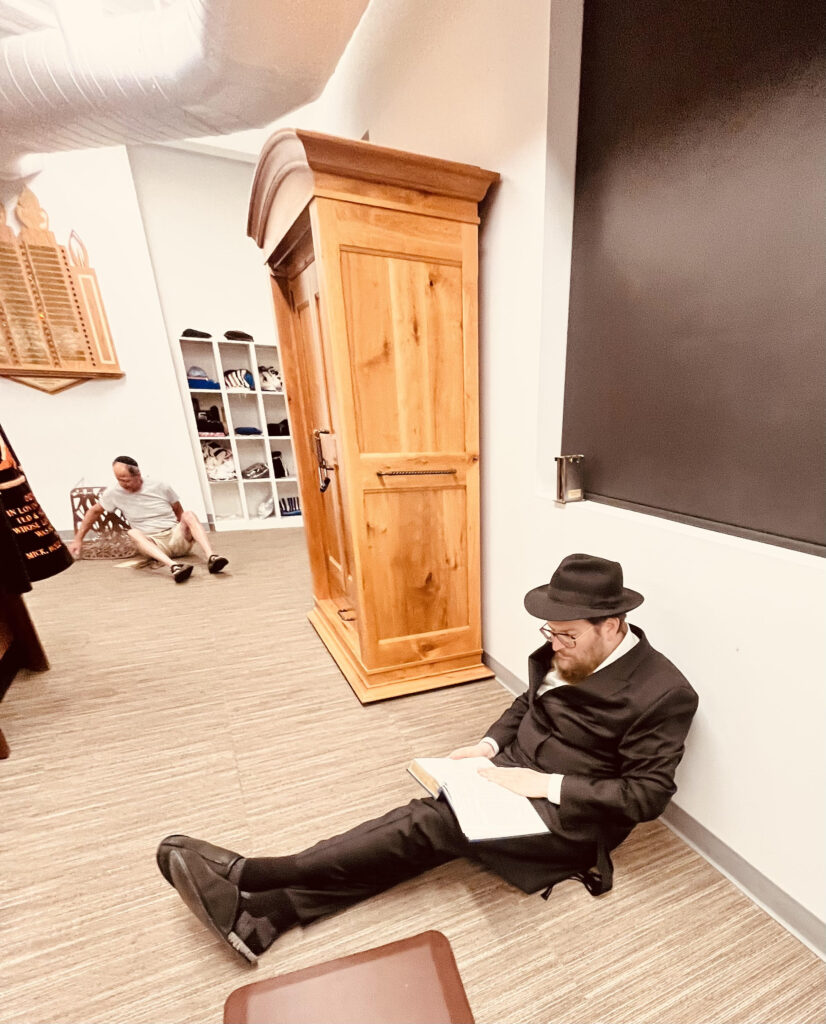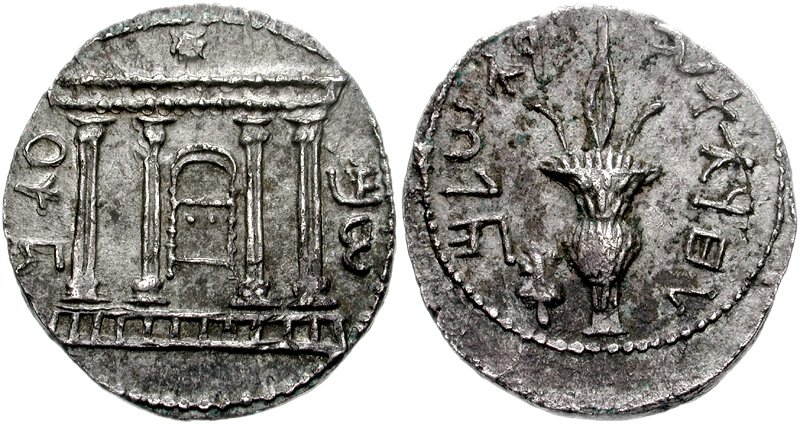A Time To Whistle
The prophets have long consoled the Jewish People by stressing that even after the difficult period of exile and destruction, there will be a future in-gathering of the Jewish People returning to the Holy Land and a rebuilding of its desolated cities. This dynamic is reflected in the Biblical Hebrew word shreikah, which we will see below is used both in reference to the bewilderment and astonishment of one facing utter destruction and also in reference to the means by which the message is spread that scattered individuals should reunite. Both of these meanings can be rendered “whistling” in English.
The Biblical Hebrew shreikah is used in reference to one who beholds a destroyed and desolate space, especially one that had previously been thriving. For example, the Scroll of Lamentations (Lam. 2:15–16) reports that after the fall of Jerusalem, when the gentiles would encounter that Holy City, they would “whistle” (sharku). Rashi (there) defines shreikah as a whistle or hiss through teeth, also known as sibilating (in an onomatopoeic sense, it can be expressed with the verbs ooing, hooing, or wooing). He further adds that it was the practice in ancient times to whistle when people encountered an important site that had been rendered idle and sedentary.
This negative development was not totally unforeseen, as the Bible records that Hashem already warned King Solomon upon the initial construction of the Temple in Jerusalem that if the Jewish People do not keep to the Law, then the Temple and the Holy Land will be destroyed such that passersby will whistle (sharak) upon seeing its ruins (I Kgs. 9:8). Generations later, Jeremiah constantly warns of doom by saying that if the Jews did not repent, Jerusalem will become a place of shreikah—“whistling” (Jer. 19:8, 25:9, 29:18, 50:13).
There is a more positive association with the act of “whistling” in its functional use as way of calling and beaconing the masses to gather. For example, when Isaiah foretells that Assyria will be overrun by Egyptian, he says, “And on that day, Hashem will whistle [yishrok] to the fly that is at the edge of the rivers of Egypt” (Isa. 7:18). This refers to Him impelling a multitude of Egyptian soldiers to gather together and invade Assyria, with His “whistling” denoting His call for those forces to mobilize. Similar verbiage is used when Isaiah predicts that Hashem will “whistle” (sharak) to the nations of the world to gather against the Jews as retribution for their sins (Isa. 5:26).
In the most uplifting and inspiring sense, Hashem says that in the End of Days, He will “whistle” at the Jewish People to gather them up when they are redeemed from the exile (Zech. 10:8). Rashi (there) explains that this “whistling” refers to the way of whistlers to whistle as a means of calling towards them those who had gotten lost. In the same way, Hashem’s future “whistling” will invite all the Jews who have strayed from the path to return to Him. As is well-known, the opening words of the poem Tikanta Shabbat (recited in the ShabbatMussaf prayer) form an acrostic of the Hebrew Alphabet in reverse. The Tur (Orach Chaim §286) famously explains this bizarre poetic device as alluding to the word tishrak (literally, “He will whistle”)—comprised of the final four letters of the Hebrew Alphabet—which, in turn, alludes to Hashem issuing that Final Whistle that will bring about the Redemption.
Radak (in his Sefer HaShorashim and to Zech. 10:8) quite prosaically writes that shreikah refers broadly to “moving the lips in order to produce a sound.” Rabbi Shlomo Ibn Prachon in his Machberet HeAruch expands on this definition, explaining that it specifically refers to puckering the lips and exhaling air through them in order to produce a sound. He adds that the vowelization mark shuruk (which produces the vowel sound oo) is related to this root because when producing the sound it presents, one puckers one’s lips as though about to whistle. [I was thinking that there might be a connection between the Hebrew shin-reish-kuf (which refers to “whistling”) and the Aramaic shin-reish-kuf (which means “smooth/slippery”) because whistling produces a smooth sound. However, my language guru Rabbi Shaul Goldman rejected that supposition.]
The Talmud (Chullin 63a) identifies a type of non-kosher bird known in the Bible as racham (Lev. 11:18, Deut. 14:17) as the sharakrak—a Hebrew ornithological term clearly derived from the triliteral root shin-reish-kuf. The Talmud asserts that this bird sitting on the ground and chirping/whistling is a sign of the upcoming arrival of the Messiah, citing Zech. 10:8 to support the connection between whistling and the Final Redemption. Likewise, Perek Shirah (which places Biblical verses in the mouths of various elements of nature) cites Zech. 10:8 as the racham’s song.
When consoling the Jewish People over the impending exile, Isaiah talks about the future redemption and mentions that the “feet of the herald” will in the future usher in peace, good, and salvation (Isa. 52:7). This verbiage is somewhat perplexing because usually one would expect the herald to inform us of the good news with his mouth, not with his “feet.” To answer this question, Maharsha (to Chullin 63a), Rabbi Avraham Palagi (Avraham Anochi to Isiaah §52), and Rabbi Shlomo Tapiero (Mikve HaMayim to Isa. 52:7) explain that the “herald” in question actually refers to the racham/sharakrak bird, as the placement of its feet on the ground when it chirps is the sign that portends the redemption. This is in line with the Talmudic tradition that the Messiah will come when the racham sits on the ground and chirps.
Rabbi Yissachar Shlomo Teichtal in Eim HaBanim Smeichah (ch. 2:12) was asked how it can be that if the Zionist pioneers are truly heralding the coming of the Messiah and the beginning of the Final Redemption that such positive and fateful developments will come about specifically through sinful Jews, who violate the Sabbath and otherwise fail to keep the Torah. Rabbi Teichtal deflected this question by noting that even in Talmudic thought, it is specifically an impure bird (the racham/sharakrak) that serves as the harbinger of the impeding redemption, not a kosher bird. [For a discussion about exactly what bird is referred to by the terms racham and sharakrak, see Rabbi Amitai Ben-David’s Sichat Chullin (to Chullin 63a).]
It is well known that the late Lubavitcher Rebbe encouraged his followers to whistle as a means of expressing elated happiness and perhaps even to symbolize (or theurgically cause) the impending geulah. This concept can be traced to his ancestor and predecessor, Rashaz (the first Rebbe of Chabad). He taught in Ohr Torah (to Gen. 49:11) that the vowel mark shuruk (which we have seen is associated with shreikah) is represented by three dots with each one below the other because it reflects the idea that a person ought to humble and lower himself until he reaches a state of self-effacement, whereby he recognizes that he is nothing vis-a-vis Hashem. Reaching this level is said to be possible through loving Hashem through the happiness that comes from performing mitzvot, and the Rashaz even says that this is the entire purpose of the Messianic Era.
However, in other Hasidic and Mussarist circles, it is commonplace for teachers to chide their students not to whistle because it is considered a goyishe practice. Rabbi Efrayim Greenblatt (responsa Rivevos Efrayimvol. 8 §604) writes that he does not know of a source that forbids whistling, but says that when he was in cheider, his teacher told him that it is forbidden to whistle. The Chazon Ish (cited in Orchos Shabbos ch. 21 fn. 60) says that nowadays whistling is considered a breach of modesty (however, in Aliba D’Hilchasa vol. 69 p. 83, Rabbi Chaim Kanievsky is quoted as saying that he never heard such a thing from the Chazon Ish). That said, my teacher Rabbi Yosef Yitzchok Lerner (in Shemirat HaGuf VaHaNefesh Tinyana pg. 454) cites a bevy of Kabbalistic sources that point to the notion that whistling can arouse harsh judgments against a person and that the arch-heretic Jacob Frank (namesake of the infamous Frankist movement) used whistling as a form of evil magic. n
This article has been excerpted from its original. Please visit 5TJT.com to read the full version.
Rabbi Reuven Chaim Klein is an author and freelance researcher based in Beitar Illit. He studied in Yeshiva Gedolah of Los Angeles, the Mir Yeshiva in Jerusalem, and Beth Medrash Govoha of America in Lakewood, and received semichah from leading rabbis. He also holds an MA in Jewish Education from Middlesex University/London School of Jewish Studies. Rabbi Klein authored two popular books that were published by Mosaica Press, as well as countless scholarly articles published in various venues. His articles on Hebrew synonyms are commissioned by Yeshivas Ohr Somayach in Jerusalem and have appeared on their website since 2016.















